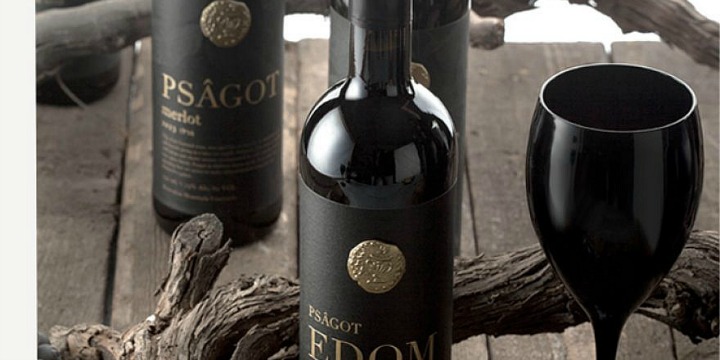Canadian Federal Court: ‘Misleading’ to Label West Bank Wine ‘Products of Israel’
 by JNS.org
by JNS.org
JNS.org – Canada’s Federal Court ruled on Monday that wine made in Judea and Samaria cannot be labeled as “products of Israel.”
The decision is part of a three-year court dispute over bottles of Psagot Winery and Shiloh Winery from the West Bank, reported the Canadian Broadcasting Corporation (CBC).
The court order means that the Canada Food Inspection Agency would decide how the wines should be labeled after having originally stripped them of the label in July 2017.
“There are few things as difficult and intractable as Middle East politics, and the presence of Israeli settlements in the West Bank raises difficult, deeply felt and sensitive political issues,” Justice Anne Mactavish wrote in her decision.
“One peaceful way in which people can express their political views is through their purchasing decisions. To be able to express their views in this manner, however, consumers have to be provided with accurate information as to the source of the products in question,” she stated.
Canadian Jewish and pro-Israel groups immediately responded to the decision.
“The Canadian Jewish community is very disappointed in today’s ruling. Claiming West Bank wines can’t be labeled ‘Made in Israel’ effectively endorses the antisemitic BDS campaign,” said Friends of the Simon Wiesenthal Center President and CEO Avi Benlolo.
Shimon Koffler Fogel, president and CEO of the Centre for Israel and Jewish Affairs, said, “Following a preliminary review of the court’s ruling, CIJA believes there are substantive errors in the judgment. Current labeling practices are fully consistent with the Canada-Israel Free Trade Agreement, as well as Canadian and international law. This is why we are urging the Government of Canada to appeal this misguided ruling.”
“The ruling is wrong as a matter of international law and hopefully the Canadian government will challenge it. The Canadian free trade agreement clearly makes products from Judea and Samaria part of Israeli customs territory,” Eugene Kontorovich, director of international law at the Jerusalem-based Kohelet Policy Forum, told JNS. “And Canada labels wines from occupied Nagorno-Karabakh ‘made in Armenia’ – so this looks like another special rule for just the Jewish State.”
“The sole basis of the ruling was that made in Israel labelling confuses consumers,” he added. “But the court sided absolutely no evidence that any substantial number of consumers who might care one way or another about a product’s origin in Judea & Samaria are unaware of that fact.”
“In our view, it is reasonable and not at all misleading to label wines produced by Israeli citizens in Israeli-controlled territory as ‘Products of Israel,’ ” B’nai Brith Canada CEO Michael Mostyn told JNS, adding that his organization “will be asking the Attorney General to appeal this decision since we cannot do so as interveners.”
“The court’s decision does not give any instruction as to how these wines should be labeled, and B’nai Brith will be making submissions to the Canadian Food Inspection Agency (CFIA) in that regard,” he continued. “The decision explicitly did not find that there is anything illegal about Israeli settlements east of the Green Line or wines produced there, despite the applicant attempting to argue this point. B’nai Brith intervened in the case to argue that there is nothing illegal about these Israeli communities in the Jewish homeland, so we see that part of the decision as a silver lining.”
 US Stops UN From Recognizing a Palestinian State Through Membership
US Stops UN From Recognizing a Palestinian State Through Membership Jordan Reaffirms Commitment to Peace With Israel After Iran Attack, Says Ending Treaty Would Hurt Palestinians
Jordan Reaffirms Commitment to Peace With Israel After Iran Attack, Says Ending Treaty Would Hurt Palestinians ‘Crisis at Columbia’: Elite University Spirals Into Chaos Against Backdrop of School President’s DC Testimony
‘Crisis at Columbia’: Elite University Spirals Into Chaos Against Backdrop of School President’s DC Testimony ‘A Time for Vigilance’: FBI Director Says Agency on Alert for Threats Against Jewish Community During Passover
‘A Time for Vigilance’: FBI Director Says Agency on Alert for Threats Against Jewish Community During Passover New Haggadah Released for Israeli Soldiers in Gaza Ahead of Passover
New Haggadah Released for Israeli Soldiers in Gaza Ahead of Passover ADL Data Reveals Alarming Campus Antisemitism, Despite Strong Jewish Life
ADL Data Reveals Alarming Campus Antisemitism, Despite Strong Jewish Life New Hospital Approved for Construction in Southern Israel Amid Gaza War
New Hospital Approved for Construction in Southern Israel Amid Gaza War UN Security Council to Vote Thursday on Palestinian UN Membership
UN Security Council to Vote Thursday on Palestinian UN Membership New Play Opening in NY Recounts Verbatim Testimonies From Oct. 7 Survivors, Families of Victims
New Play Opening in NY Recounts Verbatim Testimonies From Oct. 7 Survivors, Families of Victims




 ‘Washington Post’ Platforms Superficial ‘As a Jew’ Op-Ed on Israel & Gaza
‘Washington Post’ Platforms Superficial ‘As a Jew’ Op-Ed on Israel & Gaza US Stops UN From Recognizing a Palestinian State Through Membership
US Stops UN From Recognizing a Palestinian State Through Membership Understanding the Meaning of Elijah This Passover
Understanding the Meaning of Elijah This Passover New Play Opening in NY Recounts Verbatim Testimonies From Oct. 7 Survivors, Families of Victims
New Play Opening in NY Recounts Verbatim Testimonies From Oct. 7 Survivors, Families of Victims UN Security Council to Vote Thursday on Palestinian UN Membership
UN Security Council to Vote Thursday on Palestinian UN Membership